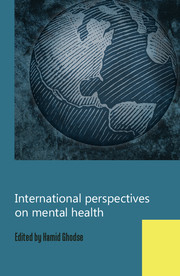Book contents
- Frontmatter
- Contents
- List of contributors
- Preface
- Africa
- Asia
- Afghanistan
- Armenia
- Azerbaijan
- Bahrain
- Bangladesh
- Brunei Darussalam
- Cambodia
- Hong Kong
- India
- Iran
- Iraq
- Israel
- Japan
- Jordan
- Kuwait
- Laos
- Lebanon
- Malaysia
- Mongolia
- Nepal
- Sultanate of Oman
- Pakistan
- The Philippines
- Qatar
- Singapore
- South Korea
- Sri Lanka
- Syrian Arab Republic
- Tajikistan
- Thailand
- Timor-Leste
- Turkey
- United Arab Emirates
- Yemen
- Australasia
- Europe
- North America
- South America
- Index
India
from Asia
Published online by Cambridge University Press: 02 January 2018
- Frontmatter
- Contents
- List of contributors
- Preface
- Africa
- Asia
- Afghanistan
- Armenia
- Azerbaijan
- Bahrain
- Bangladesh
- Brunei Darussalam
- Cambodia
- Hong Kong
- India
- Iran
- Iraq
- Israel
- Japan
- Jordan
- Kuwait
- Laos
- Lebanon
- Malaysia
- Mongolia
- Nepal
- Sultanate of Oman
- Pakistan
- The Philippines
- Qatar
- Singapore
- South Korea
- Sri Lanka
- Syrian Arab Republic
- Tajikistan
- Thailand
- Timor-Leste
- Turkey
- United Arab Emirates
- Yemen
- Australasia
- Europe
- North America
- South America
- Index
Summary
India is a low-income country that is characterised by huge diversity within and between its 35 states and union territories. For example, the infant mortality rate (per 1000 live births) ranges from a low of 16.3 in Kerala to a high of 86.7 in Uttar Pradesh, over a fivefold difference (International Institute for Population Sciences & ORC Macro, 2001). This considerable variation is evident in virtually every aspect of human development in India, and any summary figures are likely to be unrepresentative of most parts of the country. Within the scope of this short article, this important limitation of averages must be recognised at the outset.
The latest population figures for India show that the population has now crossed the 1 billion mark and is continuing to grow, although at a gradually slower pace than before. The substantial epidemiological evidence base in relation to mental disorders shows that severe and common mental disorders are at least as common as in the developed world. The social and economic risk factors for mental disorders are on the rise in many parts of the country and there has been a reduction in the already pitiful level of spending by the Government on health and social welfare (5.2% of gross domestic product). There is evidence that a substantial proportion of healthcare in India is delivered in the private sector; some estimates put this at above 75% of all health consultations.
Mental health resources
There are an estimated 4000 psychiatrists in India, which represents a ratio of approximately one psychiatrist for 250 000 people (WHO, 2001). However, as mentioned earlier, this rate varies hugely between urban and rural areas, and between more developed and less developed states. Thus, in some states the ratio falls to one psychiatrist for more than one million people. The majority of psychiatrists work in urban areas, and in the private sector. The number of other mental health professionals, such as psychologists or psychiatric nurses, is even lower: there is one nurse for every 10 psychiatrists and one psychologist for every 20. There are an estimated 25 000 psychiatric beds in the country, or one bed for every 40 000 people. About 80% of these beds are situated in mental hospitals, where the quality of care has been found to violate even basic human rights (National Human Rights Commission, 1999).
- Type
- Chapter
- Information
- International Perspectives on Mental Health , pp. 101 - 105Publisher: Royal College of PsychiatristsPrint publication year: 2011



